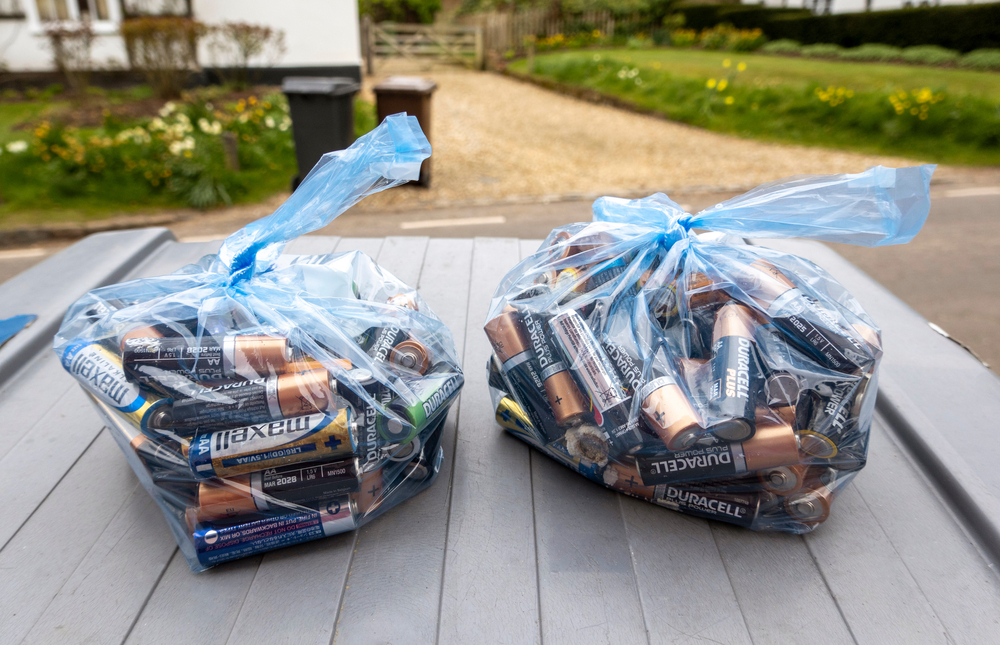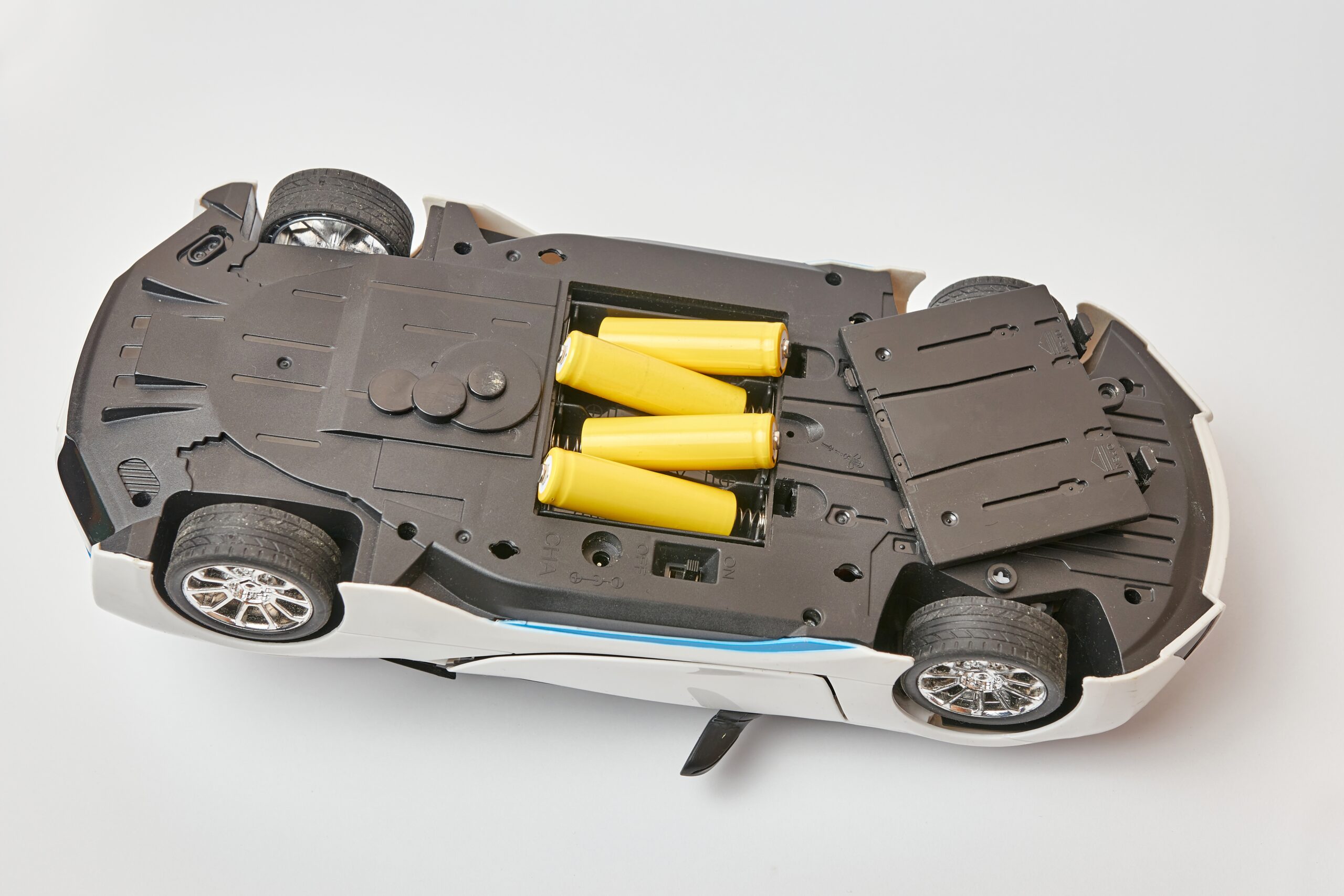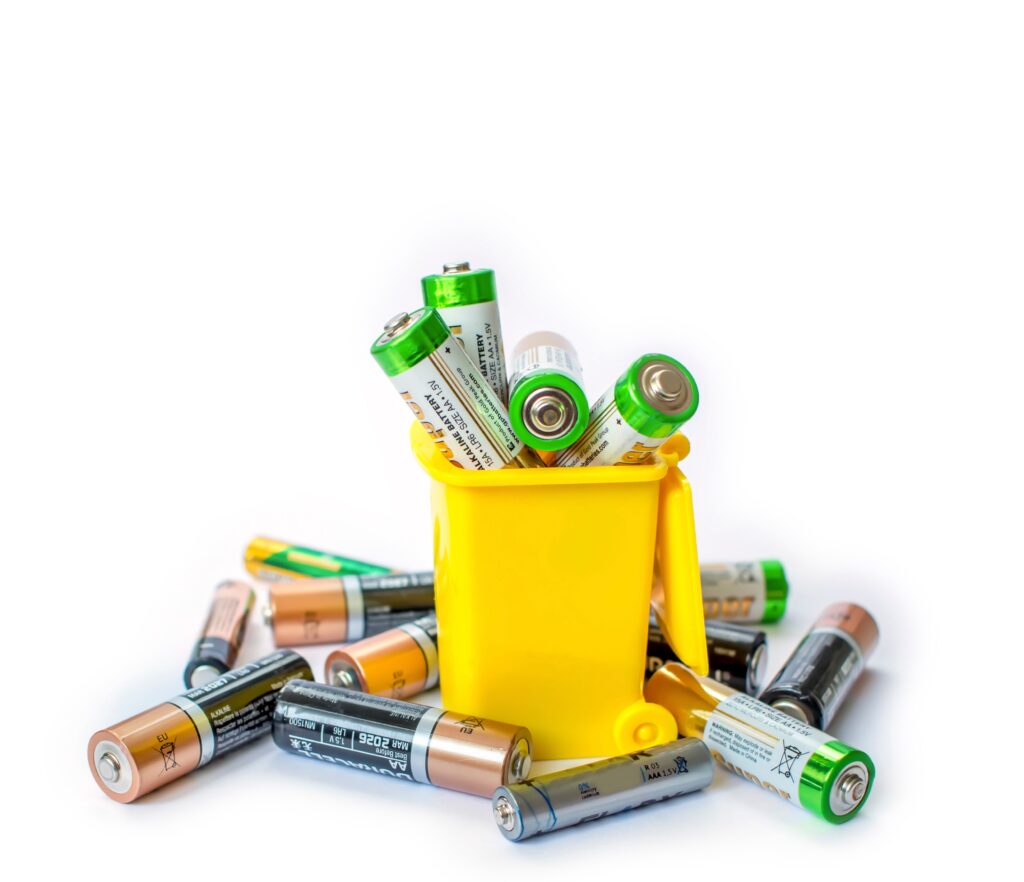The number of fires caused by batteries has been rising in recent years. A survey conducted by Material Focus among local authorities last year discovered that there were over 700 battery-related fires in the waste and recycling system across the UK.

Over Christmas, the issue is even more prevalent. Many households throw away old and broken toys and gadgets to make way for new ones, and the waste sector is on high alert to try to prevent this.
Local authorities have also been trying to play their part, with a noticable rise in communications to residents to try and raise awareness of the issue.
Christmas
In West Sussex, the authority called on residents not to let “lithium-ion batteries ruin your Christmas.”
The authority urged residents to shop safely when giving electronic devices, such as mobile phones, tablets, laptops, and e-scooters, as Christmas gifts this year, and to dispose of their old devices and batteries safely.
Many councils also includes statistics on the number of incidents caused in their area, with West Sussex saying common electronic devices are thought to have caused 187 fires in West Sussex over the past three years. Most of these were caused by electronic devices being thrown away in household bins.
The council includes a statement from Darren Wickings, station manager for policy at West Sussex Fire and Rescue Service, who said: “Lithium-ion batteries are becoming increasingly common in our everyday lives. They are safe during normal use, but present a fire risk when over-charged, submerged in water, or damaged. Using faulty or poorly manufactured devices and chargers further increases the risk.
“To help prevent a fire in your home, always use the correct charger for your device and never leave it charging unattended or overnight. Don’t forget to unplug the device when it is fully charged.
“ If you’re having a clear out over the Christmas period, remember to dispose of electronic devices and batteries safely. Never throw them away in your household bins where they could start a fire.”
Warning
A similar approach was taken by Sandwell council.
The authority issued joint communications with its contractor Serco and the West Midlands Fire Service, following “a spate of fires in the back of refuse and recycling vehicles, and at waste facilities across the country due to batteries being disposed in household bins”.

As well as traditional batteries, the council explained many everyday household items including laptops, mobile phones, electric toys, e-cigarettes, bluetooth devices, shavers, electric toothbrushes and power-bank chargers contain hidden batteries.
“This can make them hard to notice or separate out. Lithium-ion batteries in particular, which carry the highest risk of combustion, have become increasingly popular in recent years.”
Councillor Danny Millard, Sandwell council’s cabinet member for environment, said: “Ahead of the Christmas clear out, we want to make residents aware of the dangers batteries pose if not disposed of safely and to make sure we keep our waste collection crews, recycling centre staff and firefighters safe.
“I urge residents to be responsible – it’s easy to find out where your nearest recycling point is and dispose of your old batteries and electric items there, reassured that you are not going to cause any fires or pose any dangers to anyone.”
Incidents
Doncaster council issued communications explaining that carelessly discarded batteries caused four fires at its waste and recycling facilities and refuse collection vehicles throughout 2023 and parents planning a pre-Christmas toy clear-out are being encouraged to ‘check before they chuck’ to ensure that figure does not increase.
The council issued three tips for residents to remember:
- Separate Batteries: Before discarding any electronic items, always check whether there is a battery and remove it from the item.
- Use Battery Recycling Programs: Any retailer selling batteries or items with batteries should also offer battery recycling programs, The Government says that any shop selling more than 32kg of batteries a year (that’s about one pack of 4 AA batteries per day) must offer recycling as well.
- Use your local HWRC: Household waste recycling centres provide battery recycling facilities. Save old batteries and electrical items for your visit to the tip.
Doncaster’s waste contractor Suez also included a statement as part of the campaign, warning that a lot of people aren’t aware of some of the items that contain these batteries “but they’re in everything from disposable vapes to mobile phones, toothbrushes to kids toys”.
The company’s contract general manager Shane Atkins, said: ““When they’re thrown away with general rubbish, they can be damaged whilst in our collection vehicles or even at our facilities when being moved about by the machinery. Even batteries that have run out can retain enough energy to spark a fire which endangers lives.”

Communications
A string of other councils have also taken a similar approach, with communications seemingly ramping up to try to bring down the number of fires in the sector, which is damaging facilities and placing the lives of some workers in danger.
In December, insurance giant Zurich also warned of the dangers of battery fires this Christmas.
Zurich Municipal said freedom of information data it has obtained has found that the number of bin lorries hit by blazes has leapt 62% in the last two years.
A survey it commissioned also found that nine in ten (95%) are planning to declutter unwanted children’s toys to make room for new ones this Christmas. However, around one in five (21%) will throw these toys away in the household waste bin, ditching seven toys each on average.








Subscribe for free